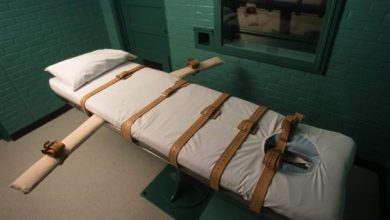InternationalNews
From gas to groceries, has Trump kept his promise to tackle rising prices?

President Donald Trump was swept to power for a second time on the back of a central campaign promise to tackle inflation.
The steep rise in the cost of living was top of voters’ minds and Trump blamed President Joe Biden.
He also made sweeping promises to bring down prices for Americans “starting on day one”.
One year on from his victory, BBC Verify revisits some of the president’s claims.
Groceries
“When I win, I will immediately bring prices down, starting on Day One,” Trump declared at an August 2024 news conference surrounded by packaged foods, milk, meats and eggs.
Official data – which includes a four-month period when Biden was still president – shows grocery prices rose by 2.7% in the 12 months to September 2025, with some items seeing significantly sharper increases:
- Coffee: 18.9%
- Ground beef (minced beef): 12.9%
- Bananas: 6.9%
Since Trump took office in January, the data also shows that apart from one recorded fall in April, grocery prices have risen each month.
“The president of the United States has very little control over the price of food, especially in the short term,” food economics expert Professor David Ortega told BBC Verify.
Trump’s tariffs are driving up prices of certain foods, he said – a third of coffee consumed in the US comes from Brazil and therefore has a 50% tariff.
Trump’s illegal immigration crackdown may also have had an impact, Ortega adds, especially in farming where as many as 40% of workers are estimated to be undocumented, which is close to a million people.
“As you know, farmers and companies have to raise wages in order to attract more labour. But trying to quantify those impacts in terms of price increase is almost impossible at the moment.”
Diane Swonk, the chief economist for KPMG, believes tariff and immigration policy changes have contributed to higher costs.
“There’s no question that those shifts are now starting to show up as inflation pressures,” she said.
But she adds that other factors, including weather events, have contributed.
“On coffee you had climate issues for a very bad growing season and that was exacerbated by a tariff on Brazil and also Colombia,” she said.
A White House official told BBC Verify President Trump did not control weather patterns in South America and coffee prices hikes were a global phenomenon.
Data that tracks the cost of coffee shows prices have risen globally, peaking in February, but are now falling.
The same official said the president was addressing rising beef prices by temporarily increasing imports.
While grocery prices are up overall, not every item has become more expensive.
When Trump succeeded Biden in January, the price of a dozen large eggs was $4.93 (£3.79), rising to a record high of $6.23 (£4.78) in March following bird flu outbreaks.
Since then prices have fallen to $3.49 (£2.68) a dozen.
“President Trump’s supply-side policies are taming Joe Biden’s inflation crisis,” White House Spokesman Kush Desai said.
Other items that have fallen in price over the past 12 months include: butter and margarine (-2%), ice cream (-0.7%) and frozen vegetables (-0.7%).
Electricity
During his campaign, Trump pledged to cut electricity bills sharply.
“Under my administration we will be slashing energy and electricity prices by half within 12 months, at a maximum 18 months,” he told a rally in August 2024.
Since he became president, prices have risen.
The latest figures show average residential electricity rates reached 17.62 cents per kWh (kilowatt hour) in August 2025 – up from 15.94 cents per kWh in January 2025, according to the US Energy Information Administration.
Source:Fiilafmonline/BBC



